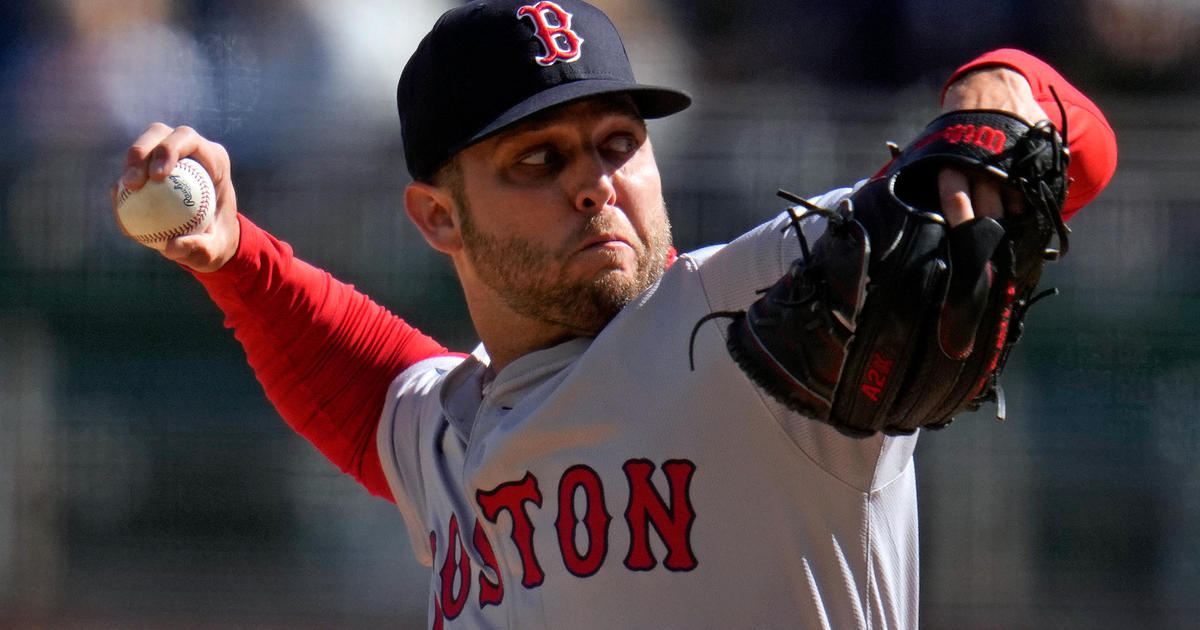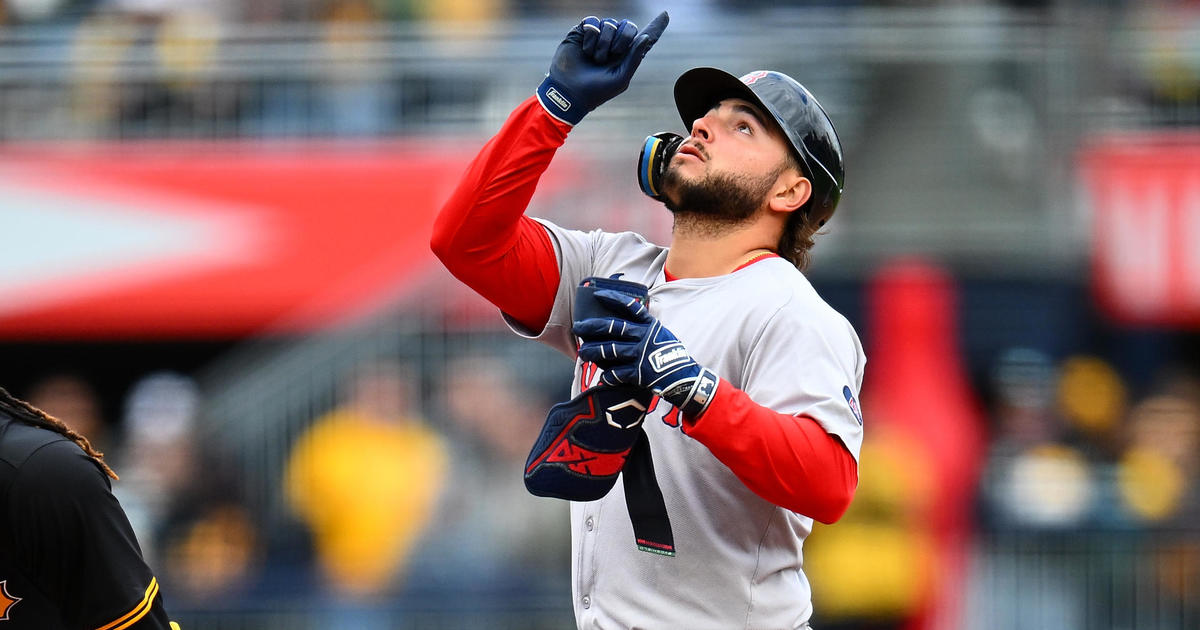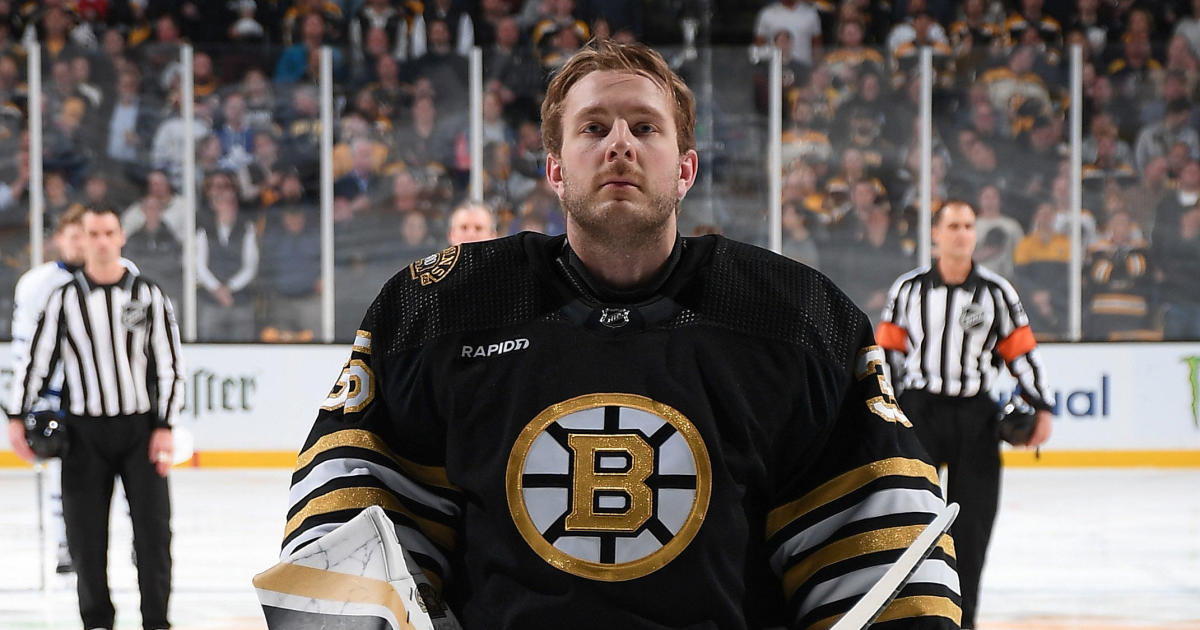Red Sox Shouldn't Be Ruled Out Of Josh Hamilton Pursuit
BOSTON (CBS) -- It might seem counterintuitive to, shortly after a team rids itself of a wildly expensive long-term contract on an outfielder, immediately turn around and sign a different outfielder to a wildly expensive long-term contract. In the case of Josh Hamilton and the Boston Red Sox, though, that might not be the case.
With Red Sox general manager Ben Cherington in California this week for the GM meetings, he clearly has a lot of work to do in trying to take the 69-93 Red Sox and turn them back into a championship contender. While the roster has issues throughout, there's no larger hole than in the outfield.
The one starting outfielder who is under contract is Jacoby Ellsbury, though he has one year remaining on his deal, has Scott Boras as an agent and is widely expected to be lost to free agency after the 2013 season. For 2012, beyond Ellsbury, there isn't much.
And that's where Josh Hamilton comes in.
As the world knows, Hamilton is at times a prolific slugger, and he has an average of 33 home runs and 107 RBIs over the past three seasons to prove it. The world also knows his risks: He'll turn 32 in May, he's a former drug addict and alcohol abuser, and he publicly struggled with caffeine and tobacco last season. There are several risks associated with signing Hamilton, and his reported asking price of $175 million over seven years will assuredly not be met by any team.
But if (when) that price eventually goes down to perhaps somewhere in the four or five-year range for between $17 million and $21 million per year, the Boston Red Sox should absolutely make a play for the best player available on the market.
For one, the Red Sox have the money, as they would have still owed Carl Crawford $102.5 million over the next five years if not for the generous bailout provided by the Los Angeles Dodgers. So in the simplest sense, if the Red Sox believe Hamilton can produce more than Crawford would have over the next few years, logic says a similar deal makes sense for them.
More than money, though, the Red Sox have a need, and the rest of the free-agent crop of outfielders is hardly a desirable bunch. Cody Ross proved capable but not spectacular in his season in Boston last year, but he's not a middle-of-the order cornerstone in a lineup. And even if they do sign Ross (for his asking price of three years, $25 million), there's still a spot open in the outfield. And if Ellsbury gets dealt in advance of that free agency, there are two spots left open for ... whom? Nick Swisher? A 37-year-old Torii Hunter? A who-knows-what-he'll-be-without-PEDs Melky Cabrera? A potential bust-in-the-making in B.J. Upton? A can't-quite-seem-to-put-it-all-together Ryan Kalish?
Doesn't the risk of a superstar like Josh Hamilton sound more appealing than Nick Swisher and Torii Hunter?
One of the cases against big spenders like Boston or New York when it comes to the pursuit of Hamilton is that the big cities offer "more temptations" than other places. Really, the biggest temptation when it comes to addiction always lies within a person's own head, and anyone who says with conviction that Boston offers more potential traps must believe that Dallas is some rural farmland, devoid of any bars, questionable characters or dark street corners. If you actually think about it, playing in a city with intense attention from the media and fans could work to help keep in check a player dealing with temptations. Last February's alcohol relapse in Dallas went unreported for a week before Hamilton went public with it. In Boston or New York, in the age of social media, Hamilton would have been spotted and photographed within minutes.
That's not to say playing in a place like Boston would help Hamilton. It is simply to point out that the temptations of a recovering addict are the same anywhere, so the idea that certain cities present more risks is a mostly specious argument.
For the Red Sox, it just comes down to the need for run producers. They won two World Series with David Ortiz and Manny Ramirez batting third and fourth. In 2004 and '07, they drove in a combined 474 runs. Ortiz is still there in the middle of that lineup, but he's turning 37 this month. Last season, the Red Sox' leader in RBIs was Adrian Gonzalez, who only played 123 games for Boston before going to the Dodgers. The next-leading run producer was Ross, whose 81 RBIs ranked him 27th in the American League. The Tigers, the AL champions, had the AL leader in RBIs (Miguel Cabrera, 139) and Prince Fielder, who ranked fifth with 108. Texas, a playoff team until the final day of the season, had the No. 2 guy (Hamilton) and No. 9 guy (Adrian Beltre). The Yankees had four players (Curtis Granderson, Robinson Cano, Swisher, Mark Teixeira) finish with more RBIs than Ross.
In terms of home runs, it was just as bad for the Red Sox. Their leader was Jarrod Saltalamacchia with 25, even though Saltalamacchia played in just 121 games as a catcher. He was tied for 21st in the AL. Meanwhile, Chicago and Los Angeles had three players higher on the list of league leaders, while Detroit, New York, Toronto, Baltimore and Texas had two players with more homers than the Red Sox' leader.
It's clear that if the Red Sox want to compete in the next two seasons, they're going to need a major boost in the lineup. Hamilton is the only player who can immediately provide that.
If there is a great risk in signing Hamilton to big bucks, it lies more in the simple sense that most big-money contracts for outfielders have failed in recent years. A quick peek at the highest-paid outfielders in MLB last season will make your head spin: Vernon Wells, Carl Crawford, Carlos Lee, and Jason Bay were all in the top six, each making more than $18 million. Wells, Crawford and Bay combined to hit 22 home runs and drive in 68 runs, which wouldn't even warrant an $18 million salary for one player.
Clearly teams must tread carefully when signing any player to big money, and the Red Sox should not break the bank, so to speak. Hamilton's asking price is absurd at the moment, and there's no reason to even come close to it. No team will.
When the price goes down though, the Red Sox should waste no time in getting involved. They have too much money and too much need to be ruled out of this one.
Read more from Michael by clicking here, or find him on Twitter @michaelFhurley.



